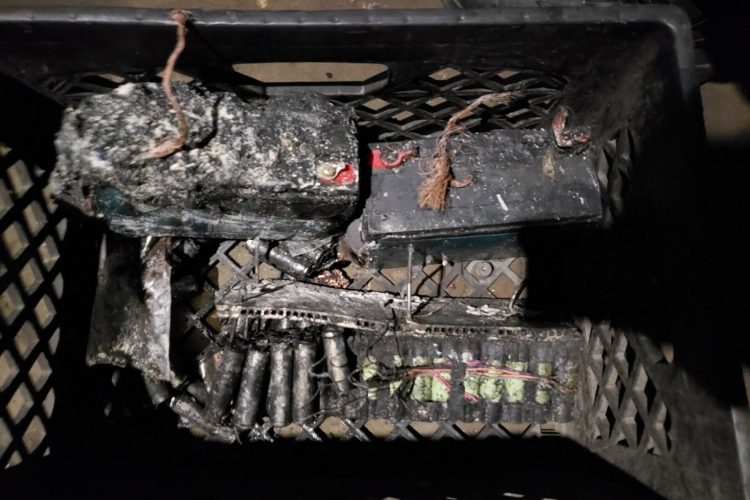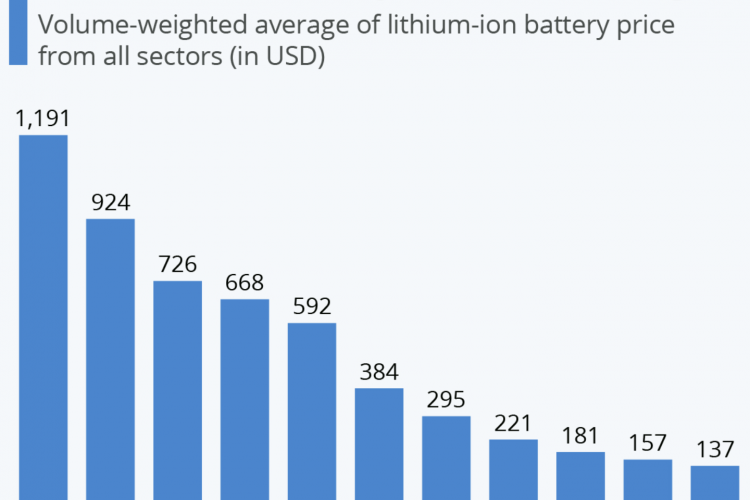Paul Zambrotta, Mr. T Carting Safety Officer
This is an incredibly important issue, and we’re going to cut right to the chase: Please do not throw out batteries in the trash or in your recycling. This includes cell phones, laptops, car batteries and rechargeable Christmas electronic toys. Instead, bring them back to the retailer you purchased them from, or contact vendors like Call2Recycle to find a drop off location near you.
Over the past few years, waste management facilities have seen a dramatic rise in fires. Many of the fires are caused by rechargeable batteries, primarily Lithium-Ion batteries (LIBs) but also Nickel Cadmium batteries (NiCad). These batteries are common and can be found in most modern technology. Cell phones, laptops, e-cigarettes, headphones, hoverboards, and lighting systems all use Lithium-Ion batteries. If it’s electronic and can be recharged, it probably has a LIB or a NiCad.
This is a national problem. One report found that 64 waste handling facilities experienced over 245 fires from 2013-2017, though the actual number is much higher. The study only pulled from fires that made the local news reports. These fires occurred across 28 states, with materials recovery facilities (MRFs) taking the brunt of the damage. Fires can range from harmless (workers are often able to extinguish them if caught quickly) to deadly. Most cases lead to interruptions in work, equipment damage and delays in service.
Mr. T has experienced 6 fires in our trucks over the past 6 months. Our workers were able to catch and put them out before any serious damage was done. This will keep happening unless serious changes are made to battery recycling habits and education. Lithium-Ion batteries must be returned to stores that sell electronics like Best Buy, Staples, or shipped through services like Call2Recycle.
Above: As the contents of a truck ignite, our driver and their helper act quickly to extinguish it.
Lithium-Ion batteries are the most common type of rechargeable battery. They hold a charge longer than most other batteries. Lithium batteries are hazardous materials and are subject to the Department of Transportation’s Hazardous Materials Regulations (HMR; 49 CFR Parts 171–180). LIBs have a “high energy density,” meaning they are lighter and can hold a greater charge than other batteries of a similar size. This density also makes them prone to igniting under certain situations.
Batteries contain a charge even when they’re depleted. If a battery container is pierced or crushed, it can experience “thermal runaway”. Page 11 of this article summarizes what happens: “A damaged or defective LIB may experience thermal runaway, a reaction in which the battery unexpectedly releases its energy and begins self-heating in a runaway reaction. This reaction can quickly produce enough heat to ignite materials near the battery, even if the battery itself does not ignite.” It goes on to say, “A LIB’s electrolyte is also combustible, providing fuel to the fire, though there is on-going research to find non-ignitable electrolyte substitutes. If the heat is not dissipated sufficiently, thermal runaway will spread to other cells of a multi-cell battery, or even to other LIBs located nearby. In practice, this chain of events means that LIB fires that are suppressed often reignite as more cells or batteries enter thermal runaway.”
Batteries with any sort of impact damage have a chance to spontaneously ignite. If a battery is dropped during its manufacturing process, battery manufacturers will discard the LIB even if no external damage is visible. Waste collection trucks and processing facilities don’t have that luxury. Trucks compact recyclables and trash when it’s collected, and that material is often unloaded onto a processing facility floor before being sorted or transferred to a landfill. This drastically increases the chance of a fire, as damaged batteries can ignite at any time and spread to the surrounding material.

If a fire isn’t caught, or gets out of control, it can cause some serious harm. Thankfully, Mr. T Carting has avoided any damage in our most recent incidents. But not everyone is so lucky. In Fountain Hills, AZ a Lithium-Ion battery fire destroyed a recycling facility and caused the town to suspend its recycling program. In Livingston County, MI a truck carrying LIBs ignited and while no one was hurt, the interstate was closed for 5 hours. Even if there’s no serious damage, consistent fires can reduce the efficiency of workers. One landfill tracked 124 fires caused by LIBs in a 3 year span (Page 51 of this report).
The cost of Lithium-Ion batteries has decreased by 88 percent in the last ten years. This has led to a wide adoption in consumer goods. Unfortunately, there is a widespread lack of public knowledge on how to properly recycle and dispose of these dangerous materials.
Right now, the best way to combat the rising issue of Lithium-Ion fires is to promote safe disposal practices. LIBs should be kept separate from one another, have both diode ends taped, and stored in a flame-retardant container filled with sand. Most companies that sell LIBs are required by New York state law to receive them when they’re emptied. Home Depot, Staples, and Best Buy all have programs to receive and safely recycle used batteries and electronics. Call2Recycle is a nationwide non-profit organization that is committed to safely recycling batteries. And most importantly, do not put batteries in trash or recycling bins.
Thank you for helping keep our workers safe this holiday season.
To learn more about Mr. T Carting’s Services, please visit us online at www.MrTCarting.com, email us at CustomerService@MrTCarting.com, or call us at (718) 821-9706.
Mr. T Carting Corporation, 73-10 Edsall Ave, Glendale, NY 11385, BIC # 173

